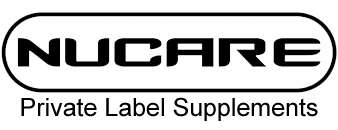
The Number One Mistake That Kills Supplement Companies
Mike MyersThe Pitch
Brad’s palms glistened under the halogen board room lights. He’d spent so much time preparing for this moment, and burned through all of his life savings.
“My wife is gonna kill me if I screw this up” he thought as the projector whirred to life. He snapped back to attention as his company’s logo appeared on the screen.
“Good evening ladies and gentlemen, today I am thrilled to share with you the most innovative protein supplement on the market. With your help, PROtein will become the most profitable supplement company in the world”.
Brad was not alone in the boardroom. With him was Dirk, a veteran of the fitness industry with over 20 years of experience owning gyms, supplement retail locations, and personal training clients. Towering over his left shoulder was Gary, a former NFL linebacker turned corporate sales man. Together they made the perfect team.
“We’ve spent years doing clinical research on the most effective muscle growth formulas. Now we have the most potent protein powder on the market which more than doubles the results of our closest competitor. This proprietary formula is patented and developed by a team of researchers at the University of Maryland. We are ready to turn this incredible product into a juggernaut in the fitness industry.”
The slide shifted to a chart with projected sales figures.
“We expect our product to sell over $30 million in year 1, and grow to $200 million in sales by year 5. Our formula is so far ahead of anything else in the market that we will have no problem finding customers in the $21 billion supplement industry that continues to grow year-over-year.”
George Stefansson squinted at the presentation with steely blue eyes from the executive table, his hands folded over his crisp three piece suit. The numbers checked out. He had already vetted the inventors and confirmed that they were the best in the world. PROtein just might have the best protein powder on the market. Still, something tugged at the back of his mind.
Suddenly Gary stepped forward, clearing his throat like an SUV on a gravel drive. His towering frame immediately demanded the attention of every person in the room.
“I know what you’re thinking,” Gary rumbled as his eyes scanned the diminutive executive board, “how are we going to compete with the big supplement companies like 1st PHORM and GNC?”
The only sound was the air conditioner softly purring overhead.
“My time in the NFL taught me how to improvise and overcome anything to achieve everything. That’s why I’m a 2 time league MVP. I don’t say that to brag, I say it to state a fact.” His cheeks were pink as he accentuated his last point with a dramatic index finger pointed at the audience.
“After my time in the league I used my winner mentality to grow over $100 million in revenue my first year at Dell. I know how to make a sale. We are going to use my name recognition to make deals with retailers to get PROtein in stores across the United States within the first year. Then it will only be a matter of introducing consumers to our product using TV and magazine advertisements.”
George Stefansson was admittedly impressed by the outburst, if a little annoyed. The startup team appeared to have it all on paper; the product, the team, and the sales strategy. Still, there was a faint echo somewhere that something was a little off. Stefansson’s stomach grumbled and he glanced at his watch; 1:53 PM. They had been in this presentation for nearly 3 hours. Who was he kidding, they were investors, and the patents alone begged to be snapped up in this deal. They would counter PROtein’s ask of $500k investment with an offer of $50k, just enough to get operations started and their foot in the door. Surely that was as low a risk an investment that they would ever find.
The Reality
PROtein is a story based on a real company with projections very similar to this one. They had an all-star team and a muscle growth formula on the cutting edge of clinically-tested research. They had investors who sunk $90k to get manufacturing started. PROtein died within 2 years of its investor pitch.
What causes some supplement companies to fizzle out before they get off the ground? Product differentiation is tough for many startups, but PROtein had a team of inventors create a formula that was tested and proven.
Lack of experience running a business with inventory and ordering can sink first-time entrepreneurs, but once again PROtein was doing everything right. They had 3 co-founders who all had experience managing large companies with complicated logistics.
Could a lack of team chemistry be the problem? Maybe, but interpersonal conflicts usually flare-up as a result of challenges within the business. In this case, that challenge was a product-market fit.
When the founders of PROtein were planning their business, they made a mistake that many other startup owners make; they assumed that everyone would want their product. Entrepreneurs get excited when they have a great idea, and they can’t wait to share it with anyone who will listen. While that enthusiasm is great for launching a company, it’s terrible marketing. The key to breaking out into an industry you did not previously have a presence in is to narrowly target a specific audience and blow their minds with how effectively you meet their need.
PROtein thought that since they all had experience in the fitness industry, it would be easy to appear on the scene and take everyone’s attention. The reality is, none of them were well known by a large population of supplement users. Even the NFL star had been out of the limelight and working in computer sales. Every single one of them was using supplements as a part of their daily lives, but they had no brand and no one knew them.
In their pitch, the trio rapidly mentioned a range of possible customers. Athletes, casual gym goers, and at home fitness wannabes are all part of the multi-billion dollar supplement industry. Yet not once in their business plan did they include a break-down of who their target audience was and how to market to their needs. A smart startup owner will ask the question, which audience are you going to target? Explain the needs of each one of those audiences, and why your product will be catered to perfectly fit just one of them. Laser focused targeting gives your business direction and adds teeth to your marketing.
A business grows by expertly meeting the needs of an audience until a process is developed that makes it scalable. Only after you’ve got a niche market begging for your product can you take those profits to expand into another market. Take that as a word of warning as you start your supplement brand: know your audience.
